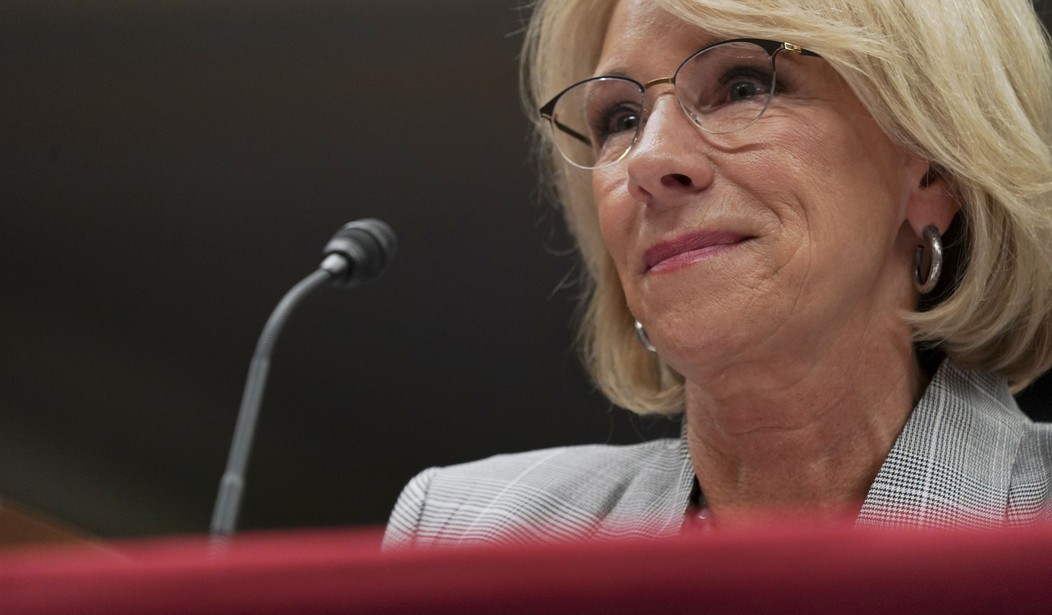The Department of Education released a provision protecting taxpayers from wasteful spending within the Coronavirus Aid, Relief, and Economic Security (CARES) Act. The bipartisan relief package includes the Higher Education Emergency Relief Fund (HEERF), which mandates that at least 50% of CARES Act funding be distributed to students for emergency grants on account of COVID-19-related interruptions and unforeseen circumstances. The grants would cover health and child care, food, course materials and technology.
The department’s interim final rule (IFR) says that those grants, funded by taxpayers, can only be allocated to U.S. citizens. Under this IFR, foreign nationals and non-citizens are not eligible for these taxpayer-funded grants. Secretary DeVos's IFR also provides clarity to higher education institutions in order to deem students eligible for the taxpayer-funded emergency grants. The rule gives these institutions the autonomy to use other emergency funds to subsidize non-citizen students, just not with taxpayers footing the bill.
“It’s clear the CARES Act was written to help Americans recover from the coronavirus pandemic,” said U.S. Secretary of Education Betsy DeVos. “U.S. taxpayers have long supported U.S. students pursuing higher education, and this rule simply ensures the continuity of that well-established policy. As I’ve said since the law passed, my first goal was to get these funds to eligible students in need as quickly as possible. Today’s action helps erase any uncertainty some institutions have expressed and helps make sure we can support America’s students facing the greatest needs. We have a responsibility to taxpayers to administer the CARES Act faithfully, and that’s exactly what we’re doing.”
Recommended
The department’s IFR aligns with Title IV eligibility requirements, which would also prevent non-citizens and foreign nationals from receiving taxpayer-funded grants and loans. Secretary Devos’s IFR streamlines eligibility and protects taxpayers from footing the bill for the grants of non-citizens.

























Join the conversation as a VIP Member